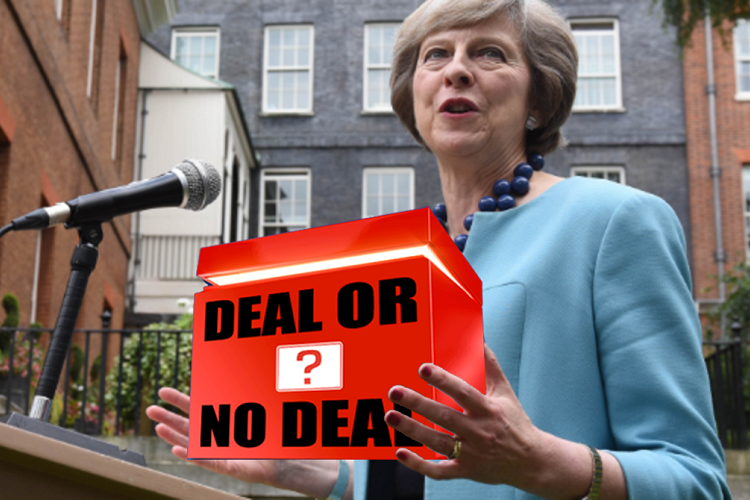I quite used to enjoy occasionally watching Deal or No Deal on television. Being a risk taker myself, it appealed to the gambler in me. A gambler who spent far too much time of his misprint youth playing fruit machines. Way back then, the stake was 5p and the jackpot was £2. Now the former can be up to £100 a spin.
The Gambling Act 2005 acted as the catalyst and ushered in a new era which not only allowed online gambling, but also the promoting thereof. Nightclubs became Casinos. Some high streets now have two William Hill’s so that they can operate eight fixed odd’s betting terminals (FOBT’s) in that area, and not just four. These after often referred to as the crack cocaine of gambling, which is why I am delighted that my propensity to play such machines has receded.
Against this explosion of both on and offline gambling, a plethora of TV franchises were devised to appeal to the gambler within most of us, with 'Who wants to be a Millionaire?' and 'Deal or no Deal' being just two examples.
During this period, I was helping US eCommerce companies reach out to and better serve their European customers by encouraging them to hold inventory in a Glasgow warehouse. It was an easy sell – given the global architecture of the World Wide Web, they already had European customers. The ease of doing business, same language, and one-time zone nearer to Uncle Sam than our European neighbours, and of course open access to some 500 million European consumers. Business was booming.
Then came 23 June 2016.
Understandably, my clients wanted to know what implications Brexit would have for them. At first, I focussed on the only tangible positive – the fact that they were now getting significantly more pounds for their buck, thanks to the relegation of sterling to one of the world’s worst-performing currencies.
However, knowing that tariffs for sending a sound blanket from Scotland to Italy might soon become a reality, I found it increasingly difficult to sell a destination I no longer believed in. After all, if I were a US Businessman or woman selling tangibles looking to expand into Europe, would l want to locate my business in a country that has elected to remove itself from the world’s largest trading bloc? No. In short, the UK is no longer such an attractive destination for overseas companies who have historically seen it as a gateway to Europe. On the contrary, it is arguably 28th on the list. A sizeable client had Glasgow and Amsterdam on his short-list for a new warehouse. The Netherlands won.
Being half German, I decided to turn my attention to helping UK (&US) SME’s remain not only inside the single market but to base themselves inside Europe’s beating heart. Doing so will give them a distinct advantage over their competitors, who are simply retreating behind the drawbridge and waiting to see what happens next.
And the stakes could hardly be higher. The top prize of £250,000 offered in TV’s ‘Deal or No Deal’ fades into insignificance when compared to the economic well-being of an entire country. Given the slow progress of talks, it is looking increasingly likely that we could be heading for a hard, or ‘cliff edge’, Brexit. A countdown clock on my website informs me that at the time of writing we have 539 days left.
The best-case scenario would be no change in the status quo – frictionless trade with the remaining 27 members of our largest export market.
The worst-case scenario does not bear worth thinking about: additional costs, bureaucracy, and disruption to the supply chain. The Dover port boss has already warned that the south east of England could come grinding to a halt if no deal can be agreed.
So, let’s hope for all our sakes that common sense will prevail and that a deal that suits us all can be reached. The UK is, after all, Germany’s largest export market for all those wonderful motor cars.
But given that common sense has been sorely lacking in British Politics as of late, I’m not holding my breath and am prepared more any eventuality – Deal or No Deal.


 British/German dual national Marc Jarrett, Managing Director of Emjay Consultancy Ltd, has historically focused on helping US firms expand into the UK.
British/German dual national Marc Jarrett, Managing Director of Emjay Consultancy Ltd, has historically focused on helping US firms expand into the UK.